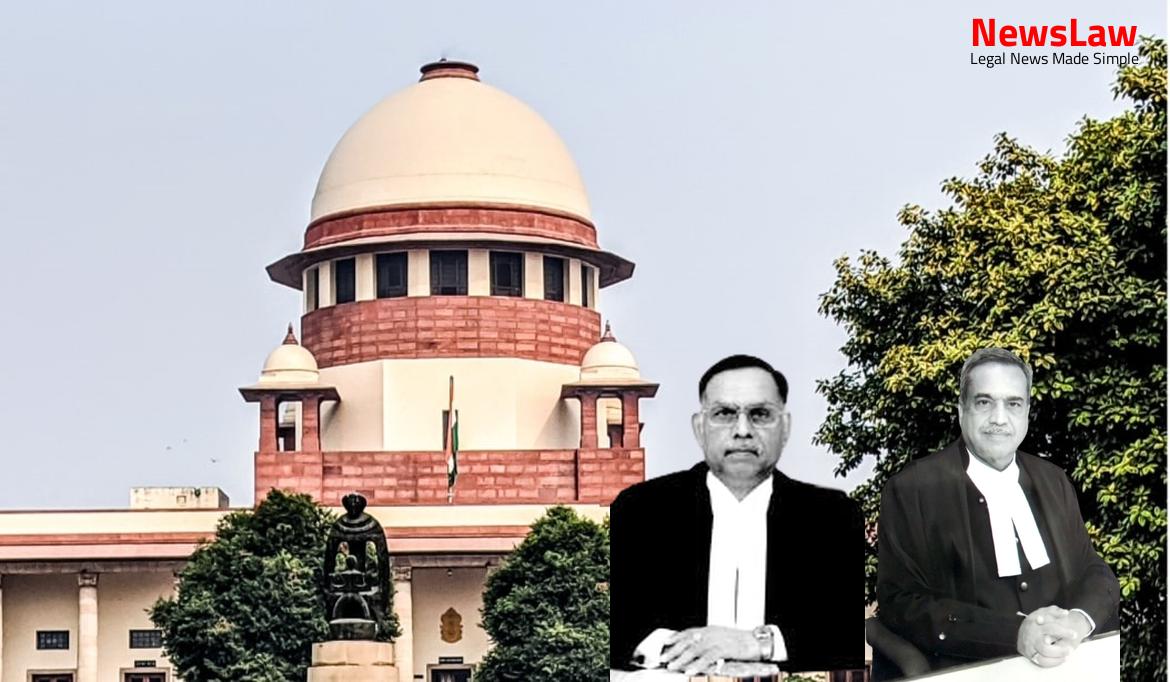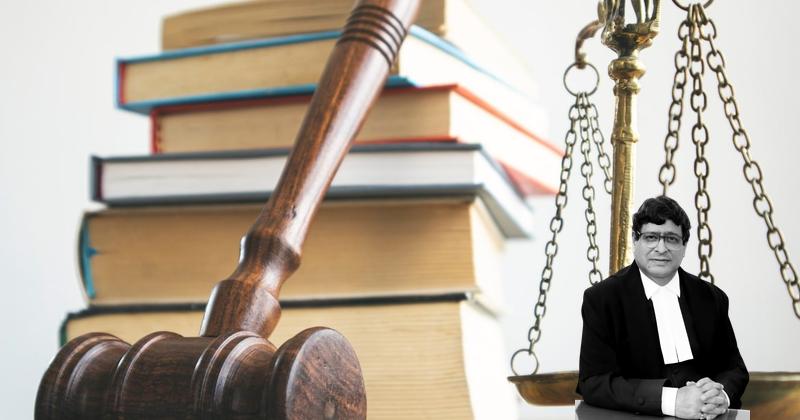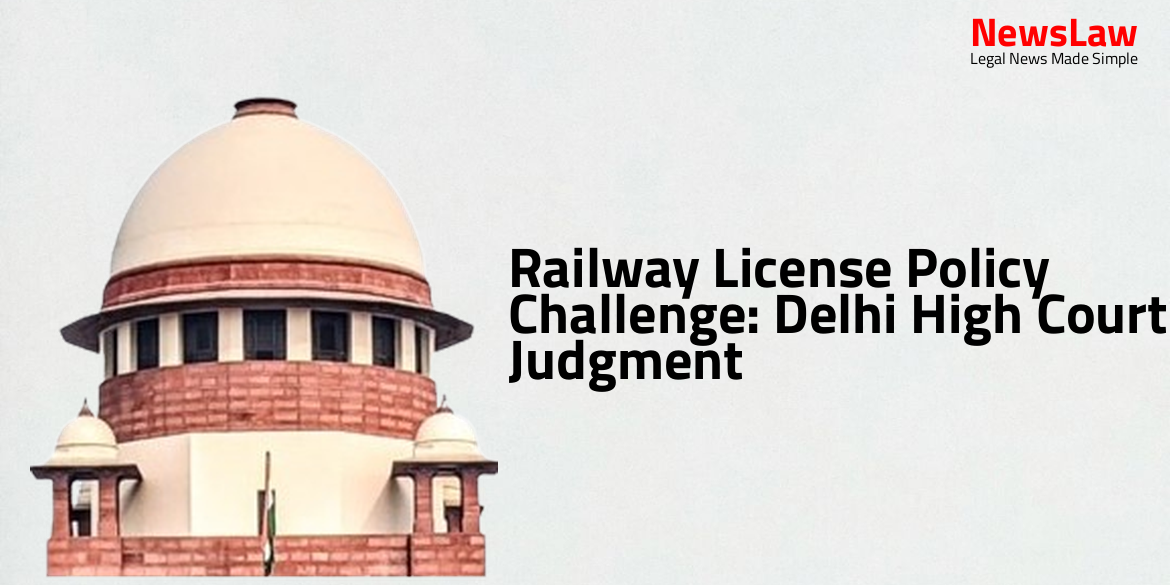Explore the complex legal landscape of a case centered around penalty payment and property ownership. The court’s detailed analysis of the parties’ rights and obligations sheds light on the intricacies of the dispute. Stay tuned to understand the legal nuances at play in this intense legal battle.
Facts
- An SLP(C) Diary No.30539 of 2017 was filed by the Trustees of H.C. Dhanda Trust against the judgment of the Madhya Pradesh High Court dated 30.03.2017.
- The appellant challenged the notice dated 04.06.2020 issued by Addl. Tehsildar (Recovery) as well as the order dated 04.06.2020 of the Office of Municipal Corporation, Indore.
- Writ Petition No.8145 of 2020 was filed by the appellant aggrieved by two notices dated 04.06.2020.
- The Municipal Corporation issued a letter dated 27.07.2020 to the Sub-Divisional Officer, Revenue, Indore requesting the removal of encroachments on Municipal property and the handover of land possession to the Municipal Corporation.
- The appellant purchased the property in question, Lantern Hotel, through a Registered Sale Deed dated 27.11.2019 from the Trustees of the Trust of Jogesh Dhanda and Ishan Dhanda.
- The appellant applied for development permission and was granted permission for construction on 18.11.2019.
- An application for mutation was filed by the appellant in the Municipal Corporation.
- The appellant also deposited Rs.2,92,20,794/-
- No interim order in SLP(C) Diary No. 30539 of 2017 pending in the Court, hence liable to pay penalty.
- Payment of penalty by post-dated cheques not approved by the High Court.
- High Court directed payment of penalty amount in full before reapplying for building permission.
- Appellant as a subsequent purchaser held liable to pay the penalty amount.
Also Read: Transfer of Writ Petitions for Chartered Accountants’ Tax Audit Guidelines
Arguments
- The petitioner’s counsel argues that a significant portion of the penalty amount has already been paid, and post-dated cheques were provided for the remainder.
- The building permission granted to the appellant was allegedly canceled unjustly by the Municipal Corporation.
- The Collector of Stamps had accepted the appellant’s commitment to pay the penalty amount, as per a letter dated 23.11.2019.
- Despite a stay order from the Court on 07.07.2020, the Municipal Corporation continued to take illegal and malicious actions against the appellant.
- The rejection of mutation and building permission by the Municipal Corporation is contested as unjustified.
- The property in question has a historical ownership dating back to 1948, and the appellant’s purchase of the property was legitimate.
- The State authorities’ actions are deemed as harassment and beyond their jurisdiction, warranting dismissal.
- Notices and actions taken by the Corporation and other authorities subsequent to the decision of the writ petition cannot be challenged in this appeal.
- Subsequent actions and letters were not part of the writ petition and cannot be considered in this appeal.
- If aggrieved by any action taken after the decision of the writ petition, appropriate proceedings can be taken separately.
- Advocate General representing the Corporation mentioned that the appellant is in possession of the property in question and supported the cancellation of building permission.
- Counsel argues that the action of the Additional Tehsildar asking for recovery of a specific amount was unjustified.
- Appellant deposited deficit stamp duty and post-dated cheques covering the penalty amount, which were accepted by the Collector Stamps.
- Two cheques of Rs.2 crores each out of the total penalty amount have already been encashed by the State Government.
- Appellant has undertaken to ensure clearance of all cheques given towards the penalty amount.
Also Read: Analyzing Interference with Acquittal in Legal Conviction Case
Analysis
- The High Court rightly observed that facility to deposit the penalty by post-dated cheques cannot be approved.
- The appellant, as a subsequent purchaser, was liable to deposit the outstanding penalty mentioned in the gift deed.
- Deficiency of stamp duty was deposited through Treasury Challan, but the penalty remained unpaid.
- Only post-dated cheques were submitted for the penalty amount between specific dates.
- The interim order granted by the Court in 2017 was not complied with, making the Trustees of H.C. Dhanda Trust liable for the stamp duty and penalty.
- The petitioner failed to deposit the penalty amount and this fact was suppressed.
- Trustees of H.C. Dhanda Trust were obligated to deposit both stamp duty and penalty as per the Collector’s order.
- The court has upheld the decision of the Addl. Tehsildar(Recovery) in demanding an outstanding amount of Rs. 8,80,97,025 as of 04.06.2020.
- It has been concluded that the court has rightly chosen not to interfere with the order issued by the Addl. Tehsildar(Recovery).
Also Read: Judicial Review on Sentence and Compensation in Criminal Case
Decision
- Trustees of H.C. Dhanda Trust failed to deposit stamp duty, leading to no interim order being in operation.
- Order dated 22.09.2008 imposing penalty of Rs.12,80,97,000 was modified to Rs.6,40,48,500 by this Court.
- Appellant has deposited about Rs.8.8 crores towards the penalty.
- Appellant can apply for building permission as per High Court’s judgment dated 10.06.2020.
- Orders, notices, and actions not part of the writ petition before the High Court cannot be considered in this appeal.
- Appellant is directed to clear all post-dated cheques for penalty payment, subject to the court’s pending petition.
- Municipal Corporation is directed to reconsider the application for building permission after stamp duty and penalty deposit.
- Writ petition challenging notices dated 04.06.2020 issued by authorities was dismissed by the High Court.
Case Title: M/S MSD REAL ESTATE LLP Vs. COLLECTOR OF STAMPS (2020 INSC 554)
Case Number: C.A. No.-003194-003194 / 2020



